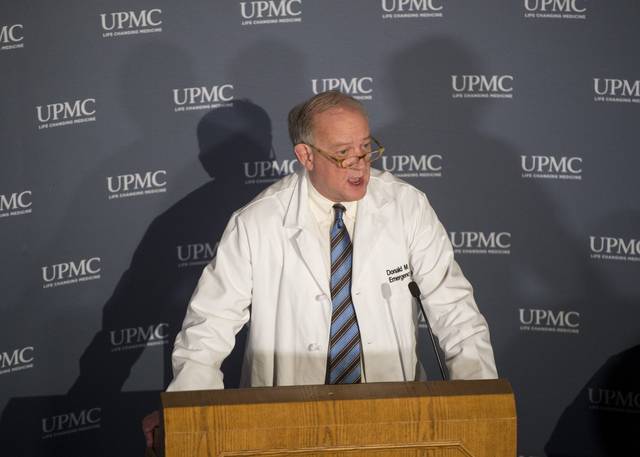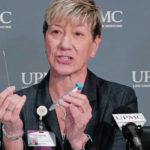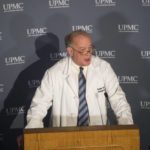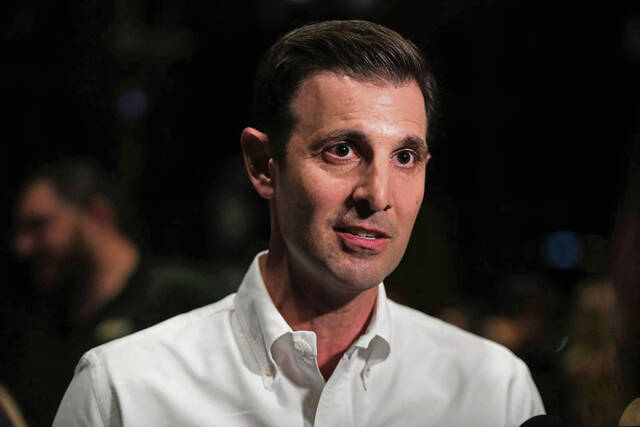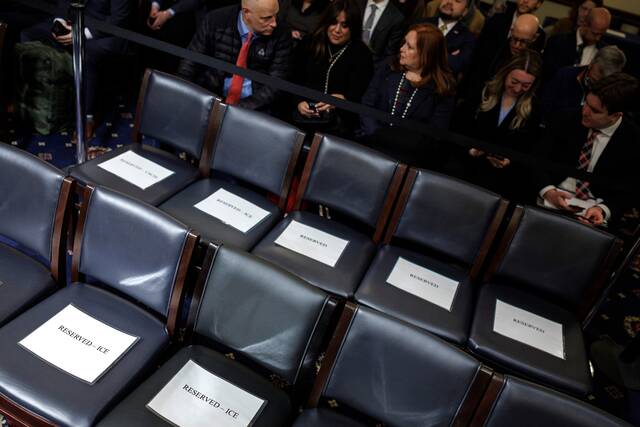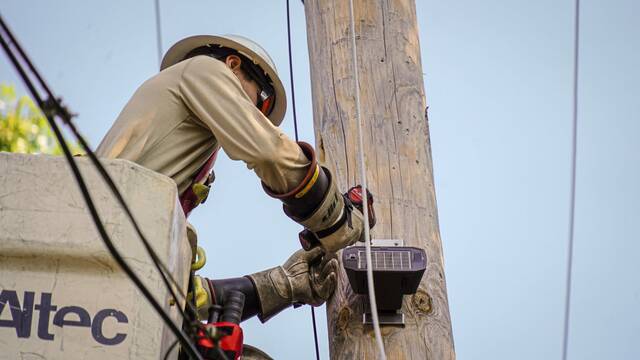Health giant UPMC will begin testing all asymptomatic patients for covid-19 as it looks to clear the way for restarting some of its shuttered but medically necessary surgeries.
Officials at the Pittsburgh-based health system announced Tuesday the universal testing will begin with all patients requiring hospitalization for surgery or other invasive procedures.
The testing eventually will be rolled out to include patients in UPMC’s outpatient centers as well as its emergency departments — even if they have no symptoms of covid-19, the disease caused by the novel coronavirus.
“This is how we assure safety and we learn more about the disease,” said Dr. Don Yealy, chair of emergency medicine.
UPMC will use an internally developed test that involves a nasal swab, said Tami Minnier, the system’s chief quality officer.
The health system previously has only tested patients with symptoms of the disease.
UPMC officials said their tests have shown covid-19, while prevalent in other parts of the country, is not widespread in Western Pennsylvania. Yealy said about 6% of UPMC patients tested in the past week have been positive for the virus. By contrast, 12% of patients tested positive in early March.
Experts have said the coronavirus has the ability to spread by people with no symptoms of the disease.
While UPMC has made room at its hospitals for a potential surge of covid-19 patients, less than 2% of the system’s 5,500 beds are occupied by such patients, officials said. They said less than 7% of its 750 intensive care beds are being used by covid patients.
UPMC closed all of its ambulatory surgery centers March 22.
Yealy said he doesn’t know why Central and Western Pennsylvania did not experience the same surge in patients that cities such as Detroit, New Orleans and New York have reported.
“We know, for centuries, that viral pandemics don’t enter a country or even a region exactly the same,” he said. “They don’t hit everyone at the same time, or at the same intensity.”
Spread of a virus could be influenced by differences in population, mobility and density, he said.
“One thing’s for certain though: I do think that Central and Western Pennsylvania prepared relatively earlier than other places,” Yealy said. “In other words, the activities we were asked to partake in — social distancing and other things — I think we got on board quicker and more completely, and the benefit was that we were able to dampen that curve.”
It remains unclear when surgeries could restart at UPMC. Pennsylvania Health Secretary Dr. Rachel Levine said Tuesday “the time is not right yet” for hospitals to restart, though officials are working closely with UPMC and other health systems. She said her concerns include using up intensive care beds as well as personal protective equipment.
Yealy said UPMC has informed the governor’s office and the state Department of Health of plans to restart surgeries. He does not expect UPMC to be in conflict with the state’s recommendations.
Yealy declined to answer a question about the business and financial impact the pandemic has had on the UPMC health system.
“Our efforts really came from the health care providers — the physicians, the nurses — and from the patients,” Yealy said. “That’s why we’re undertaking this particular effort. It is not in response to a business concern or an opportunity. Of course there’s an impact, I’m just not the person to be able to answer that question.”
Antibody testing ramps up
UPMC has started antibody testing to screen patients eligible to donate blood plasma used to attempt to treat the coronavirus.
The treatment, called convalescent plasma, has not yet been proven to treat the coronavirus, but it has been used to fight outbreaks of the measles and influenza.
The first UPMC patient was treated Monday, and others could begin treatment this week.
The UPMC antibody test screens prospective plasma donors’ blood for the presence of two types of antibodies that could help others fight off the disease.
Antibodies are blood proteins the body produces to fight foreign substances such as viruses.
The test does not determine whether a person is immune to the disease, but the presence of those antibodies could signal that the body has mounted a response to the virus, said Dr. Alan Wells, medical director of the UPMC clinical laboratories.
“We are using the screening for the purposes of the convalescent serum,” Wells said. “We’re using it to deal with hard-to-diagnose cases and specific contacts after the fact, and we’re starting to use it to do targeted surveys in a targeted way. It is still a manual test that is not set up to do thousands of patients a day.”
The UPMC test is not yet being used to screen the general public.
The first antibody tests in the United States have been deployed in recent weeks, but some have failed to produce accurate results, the New York Times reported.
New York Gov. Andrew Cuomo announced this week that the state would start statewide antibody testing to evaluate how many people could safely return to work.



